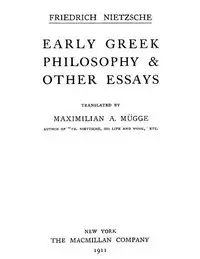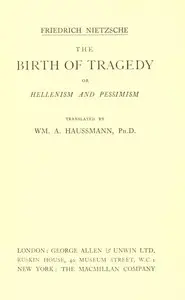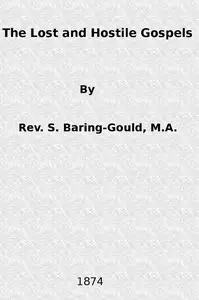"The Case of Wagner" by Friedrich Wilhelm Nietzsche is a philosophical treatise written during the late 19th century. In this work, Nietzsche examines the contributions and implications of Richard Wagner's music and ideology, critiquing its effect on culture and art while reflecting on his own complex relationship with Wagner as both an admirer and a critic. The text delves into themes of decadence, artistry, and the role of music in modern society, providing a compelling analysis for those interested in Nietzsche’s philosophy and cultural criticism. The opening of "The Case of Wagner" sets the stage for Nietzsche's rigorous examination of Wagner's influence on music and society. He expresses a profound personal transformation from a staunch Wagner supporter to a critical observer, emphasizing his struggles against the "decadence" represented by Wagner's art. Nietzsche articulates a duality in Wagner's music, recognizing it as both captivating yet morally detrimental, depicting Wagner as an emblem of sensual engagement with art that ultimately promotes decline in cultural standards. Through a series of personal reflections and aesthetic critiques, Nietzsche presents an impassioned argument that challenges readers to reconsider the values embodied in modern artistic expression. (This is an automatically generated summary.)

The Case of Wagner Complete Works, Volume 8
By Friedrich Wilhelm Nietzsche
"The Case of Wagner" by Friedrich Wilhelm Nietzsche is a philosophical treatise written during the late 19th century. In this work, Nietzsche examines...
Friedrich Wilhelm Nietzsche was a German classical scholar, philosopher, and critic of culture, who became one of the most influential of all modern thinkers. He began his career as a classical philologist before turning to philosophy. He became the youngest person to hold the Chair of Classical Philology at the University of Basel in Switzerland in 1869, at the age of 24, but resigned in 1879 due to health problems that plagued him most of his life; he completed much of his core writing in the following decade. In 1889, at age 44, he suffered a collapse and afterward a complete loss of his mental faculties, with paralysis and probably vascular dementia. He lived his remaining years in the care of his mother until her death in 1897, and then with his sister Elisabeth Förster-Nietzsche. Nietzsche died in 1900, after experiencing pneumonia and multiple strokes.


















